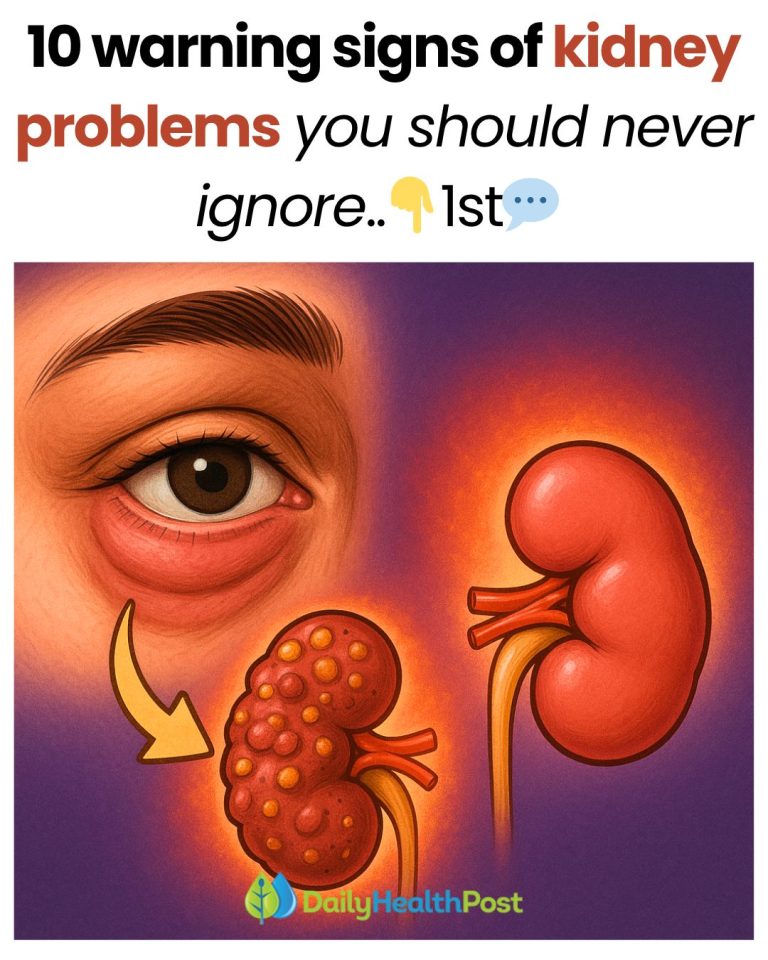Number 6. You see blood in your urine.
Under normal circumstances, your kidneys keep healthy blood cells in the body when filtering wastes from the blood to produce urine. However, when the kidney’s filters are damaged, healthy blood cells can start to “leak” out into the urine.
Number 5. Your urine is foamy.
Excessive bubbles in the urine, like the ones that require you to flush several times before they go away, are a sign that there is protein in the urine.
High amounts of protein in your urine over a period, may be the first sign that kidney disease, or another condition like high blood pressure or diabetes, has damaged the filters in your kidneys*. This can happen in Stages 1 and 2 of kidney disease.
Number 4. Your eyes are dry, red and sore.
As mentioned previously, healthy kidneys ensure that proper levels of minerals and nutrients are maintained in your blood.
When the kidneys cannot control the amounts of calcium and phosphate in the blood, these extra minerals can find their way into your eyes and cause irritation.
Number 3. Your ankles and feet are swollen.
Impaired kidney function can lead to sodium retention, causing swelling in your feet and ankles.
Number 2. You have a poor appetite.
That’s because when unfiltered waste builds up in the blood because of poor kidney function, it can suppress appetite and alter the way food tastes. Foods you once enjoyed may taste metallic and cause you to eat less.
Number 1. Your muscles are cramping.
Electrolytes are needed to regulate nerve and muscle function, hydrate the body, balance blood acidity and pressure, and help rebuild damaged tissue.
For example, a muscle needs calcium, sodium, and potassium to contract. When these minerals become imbalanced because of impaired kidney function, it can lead to muscle cramps.
Next, let’s talk about the one ingredient that affects your blood pressure, heart, and kidneys.
Your kidneys filter over 120 quarts of blood each day. They remove toxins and any excess fluid from cells throughout the body.
But eating too much salt or sodium can make it harder for your kidneys to do their job. That’s because salt makes your body hold on to water.
Excessive sodium intake causes the extra water in your blood to put additional pressure on your blood vessel walls.
This not only raises your blood pressure but can also damage the walls inside your arteries, which can collect plaque and ultimately lead to a heart attack or stroke.
Do you know the number one source of excessive sodium? See our video, Top 5 foods that cause high blood pressure.
In addition, salt affects people differently. For some individuals, eating sodium has little to no effect on their blood pressure.
But for others, even a slight increase in salt intake can wreak havoc on the kidneys’ ability to regulate fluid, and can lead to increased blood pressure.
Salt sensitivity is most prevalent among people who are middle-aged or elderly, and overweight. It also becomes more prevalent as we age.
Next, what are the causes of kidney disease?
Uncontrolled high blood pressure and diabetes are the most common causes of kidney disease.
Other risk factors to take into consideration include being over the age of 60, and having a family history of kidney disease.
Next, here are eight lifestyle habits to protect your kidneys.
According to the National Institutes of Health (NIH), there are several things you can do to avoid kidney problems:
- Keep your blood sugar levels stable.
- Maintain a healthy blood pressure.
- Eat healthy low-sodium meals. Try to limit your daily salt intake to 1,500 mg.
- Have annual tests to ensure your kidneys are functioning properly.
- Avoid painkillers because they can damage your kidneys-especially non-steroidal, anti-inflammatory drugs like ibuprofen and naproxen.
- Don’t smoke.
- Limit alcohol.
- Exercise regularly to help maintain a healthy weight.
Next, what are the foods that support kidney health, especially for people with kidney disease?
People with kidney problems should eat foods that don’t have a lot of potassium, sodium, and phosphorus, so as not to overwork the kidneys.
These foods also need to be high in antioxidants, so they can fight inflammation, and help the kidneys heal or stop them from getting worse.
Here is a list of foods:
Vegetables like cabbage, cauliflower, arugula, and garlic…
Fruits like blueberries, pineapple, apple, grapes and bell peppers…
Healthy Fats like olive oil, salmon, macadamia nuts…
Whole grains (and complex carbs) like buckwheat, oats and quinoa…
Protein like fish and skinless chicken breast…
People with different stages of kidney disease should consult a renal dietitian for advice on the foods they should eat.
see more on the next page
